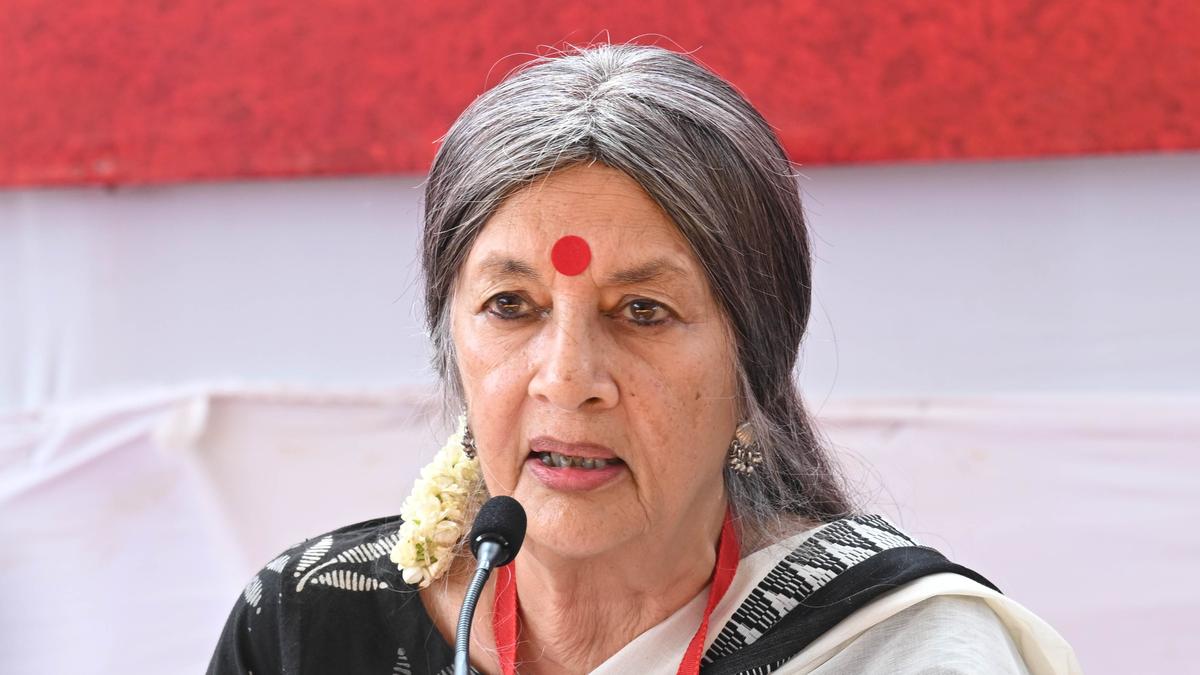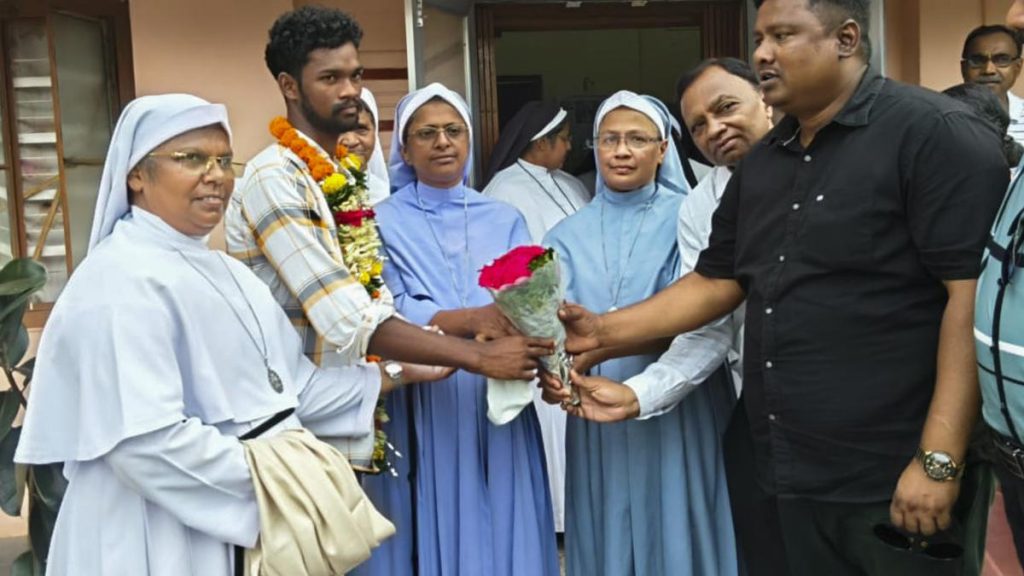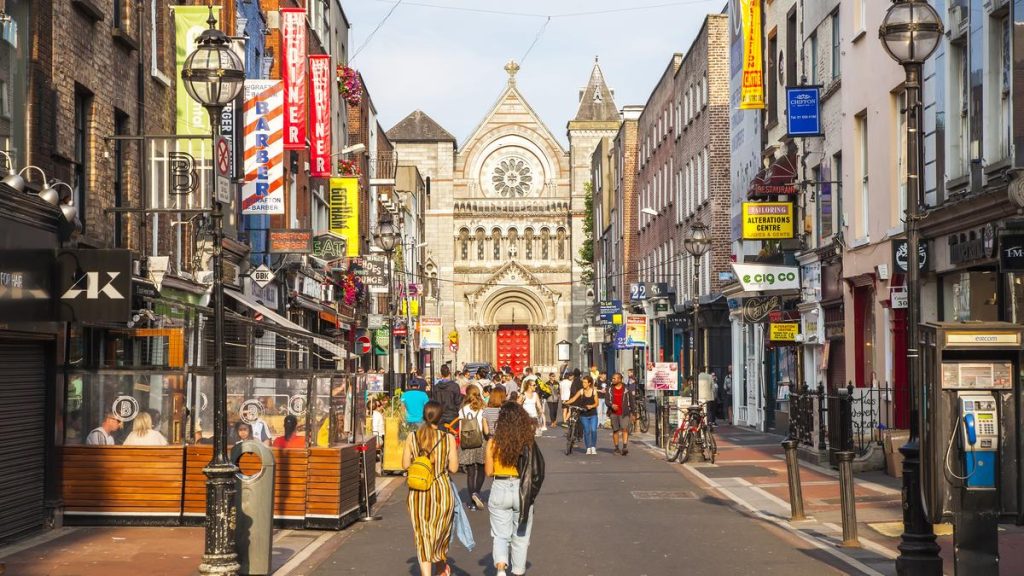Now Reading: Brinda Karat Calls Nuns’ Arrest in Chhattisgarh a ‘Fabricated Case
-
01
Brinda Karat Calls Nuns’ Arrest in Chhattisgarh a ‘Fabricated Case
Brinda Karat Calls Nuns’ Arrest in Chhattisgarh a ‘Fabricated Case

Quick Summary
- On July 25, two Kerala-based Christian nuns, Preethi Mary and Vandana francis, along with Sukhman Mandavi from Narayanpur district in Chhattisgarh, were arrested by the Railway Police in Durg.
- The arrest followed a complaint by a Bajrang Dal member alleging trafficking and intended religious conversion of three tribal girls to Christianity.
- The detainees denied coercion and stated the travel was for employment purposes without any forced conversion or influence.
- Communist Party of India (Marxist) leader Brinda Karat called the case “manufactured,” alleging infringement on tribal women’s rights. She argued that adult tribal women shoudl not require additional permissions for mobility or employment decisions.
- Ms. Karat visited the detainees in jail and reported their poor health conditions exacerbated by inadequate facilities such as sleeping arrangements aggravating chronic medical issues like arthritis and fever symptoms.
- She claimed Bajrang Dal members acted disruptively with an agenda at the railway station while accusing authorities of registering an FIR without proper investigation. Additionally, pressure on parents of the three tribal women to provide adverse statements against the nuns was alleged by Ms. Karat.
- Protests condemning the arrests took place in Palakkad led by Kerala Congress (Jacob) members.
Link to original article: Read more
Indian Opinion Analysis
The incident highlights ongoing tensions surrounding religious conversions and mobility rights within India’s socio-political landscape-particularly for marginalized communities like tribal women, minorities, and those involved in interfaith humanitarian efforts. The accusations reflect deeper concerns about how claims regarding conversions are utilized amidst ideological divides.
While law enforcement should take complaints seriously, protecting individual freedoms-including voluntary travel for employment-and ensuring procedural fairness are critical principles of justice that must be adhered to even amid societal pressures from influential groups like Bajrang Dal.
Charges of discriminatory treatment specific to adivasi women raise pertinent questions about autonomy within marginalized communities when subjected to broad scrutiny based solely on association or perception rather than evidence-backed investigation.
as this matter evolves legally and socially across states with opposing narratives emerging publicly via protests from Kerala groups versus local accusations under cultural strains locally shown remarked critics overlap heavily searching system safeguards kept neutral btn manipulate























